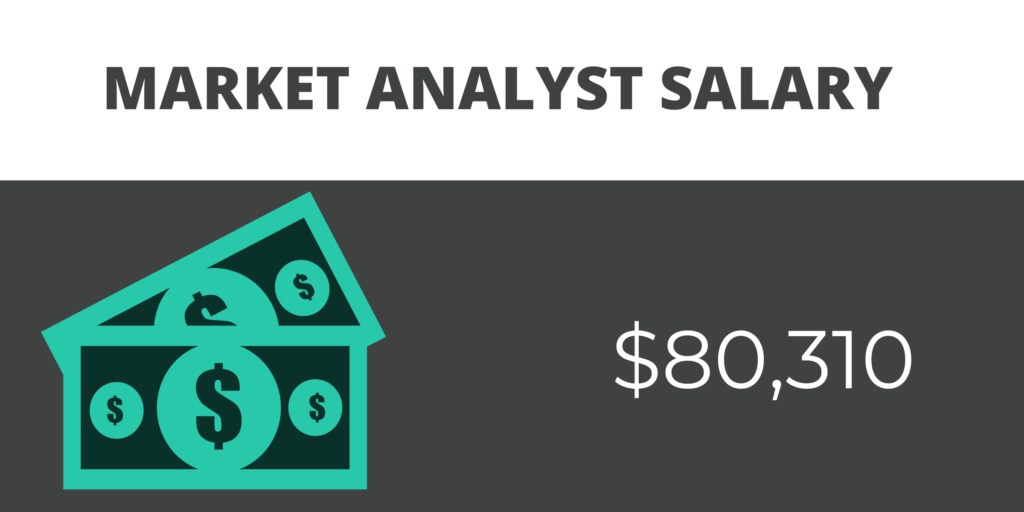Marketing in 2021 and Beyond
Marketing refers to the business of promotion, advertising, and branding–basically any profession tasked with increasing an organization’s reach to potential customers. A simple trip around the internet will reveal thousands of different marketing operations in action. Banner ads on websites, video advertisements on YouTube, product promotions on Facebook–all of these are the results of some company’s marketing efforts.
As new marketing technology and techniques evolve so too does the need for marketing specialists who know how to take advantage of all the various tools available to them in 2021. A graduate degree in marketing is the most typical route of preparation to becoming one such marketing specialist. In this guide we will explore exactly what is involved in becoming a top-tier marketing expert, so that you can capitalize on the tremendous opportunities out there such as the position International Marketing Executive with a high-end salary potential around $280,000. Read to the end to see more of the most lucrative marketing jobs in the world.
Examination of the Marketing Job Market

Marketing is one of the largest and most secure sectors of business in the job market, a fact which remains true for even the most lucrative high-end jobs. According to the Bureau of Labor Statistics, marketing managers pulled in a median salary of a whopping $135,000 in 2019 with jobs set to grow at a rate of 6% (higher than the national average of all jobs). So not only can you make great money, but you can also hold confidence that job opportunities are growing, not shrinking–which is a confidence many professionals do not have.
The viability of a graduate degree should be evaluated in accordance with the availability of highly specialized jobs. That is, when investing time and money into a graduate education, students need the promise of a return on their investment. There are certainly other considerations, but in the case of earning a Master’s of Marketing students can enjoy the confidence that upon graduation they will be met with a multitude of opportunities to earn a return on their investment.
Additional Resources on the Marketing Job Economy:
- Top 10 Highest Paying Business Careers
- 15 Top Degrees for Highest Paying Business Degrees
- Highest Paying MBA Degrees
- Highest Paying Degrees in Business
- What Kind of Jobs is there for a Degree in Digital Marketing?
- What is the Job Market for Graduates with a Degree in Digital Marketing?
- How Much Can I Make with a Degree in Digital Marketing?
- Do Most Companies Look at Someone with an Associate’s Degree of Marketing as Being Ready for Full-Time Employment in the Field?
Why Earn a Master’s of Marketing?

While it is possible to work up the ladder to mid-to-high level employment as a marketing professional, there are a multitude of challenges and risks involved. A Master’s of Marketing represents a guaranteed route to professional advancement. While it is not guaranteed that all employers will equally value graduate level marketing, it is guaranteed that some will and that some opportunities will present themselves accordingly.
Moreover, forward-thinking students will be able to maximize their time in the master’s program in order to multiply the opportunities available on graduation. Because what you can do with your Master’s of Marketing degree depends largely on the exact degree earned and the path of professional development leading to graduation.
Graduate Marketing Program Paths: MBA or Master’s of Marketing
Because marketing is a fundamental aspect of business, professionals need to establish whether they want to take a general-business approach or a specialist approach. The general-business approach means that professionals will develop their marketing skills amidst the development of other skills and knowledge relating to business operations in general. These professionals will likely enroll in business degree programs that offer a specialization in marketing coursework, such as an MBA with Digital Marketing Specialization.
The upside to this route is that upon graduation these professionals will be able to take on positions with responsibilities that typically fall outside the scope of a traditional marketer’s role. This opens the door to more positions of leadership and management, which require knowledge and skill to effectively navigate the complexities of business administration. Professionals interested in this route will want to progress through the following degrees:
Associate Degrees
- Associate of Business Administration
- Associate of Marketing
- Associate of Business Management
- Associate of Business Analytics
- Associate of Business Intelligence
Bachelor’s Degrees
- Bachelor of Business Administration
- Bachelor of Business Administration w/ Marketing Specialization
- Bachelor of Business
- Bachelor of Business w/ Marketing Specialization
- Bachelor of Marketing
- Bachelor of Marketing w/ Business Administration Specialization
- Bachelor of Management
Master’s Degrees
- MBA w/ Marketing Specialization
- Master’s of Business Development w/ Marketing Specialization
- Master’s of Business Management w/ Marketing Specialization
- Master’s of Business w/ Marketing Specialization
The key takeaways here are that students have a fair amount of freedom to study different areas of business leading up to their graduate program, but will need to decide on what path they want to take before enrolling in their graduate program. The downside of the general-business approach is that students will not be as focused on their marketing education. For this reason, many of the most competitive and high-end marketing jobs are reserved for those who have dedicated their education entirely to becoming marketing masters.
Additional Resources on Marketing Education:
Business Education
- What Can I Do with a Business Degree?
- How Advanced Does my Business Degree Need to Be to Get a Good Job?
- How Can I Prepare for a Business Degree While Still in High School?
- How Fast Can I Complete a Bachelor’s of Business Online?
- What are the Benefits of a Degree in Business Analytics?
- What are the Benefits of Pursuing a Degree in Business?
- What are the Easiest Degrees to Get in Business?
- What are the Easiest Graduate Degrees to Get in Business?
- Top 10 Undergraduate Business Schools
- Top 10 Affordable Online Bachelor’s Degree in Business Administration
- 15 Top Degrees for Highest Paying Business Degrees
- Highest Paying MBA Degrees
- At What Point or Age is it Best to Pursue an MBA?
- Do I Need to Know my MBA Specialty Before Beginning Classes?
- Do I Need to Specialize in my MBA Program?
- Highest Paying Degrees in Business
- Top 50 Online Business Degrees
- 50 Best Scholarships for Business Degrees
Marketing Education
- What Can I Do with a Marketing Degree?
- How Fast Can I Earn a Master’s Degree in Digital Marketing?
- How Much Can I Make with a Degree in Digital Marketing?
- What is the Difference between a Degree in Marketing and a Degree in Marketing Research?
- What is a Master’s in Digital Marketing?
- What Degree Do Marketing Managers Have?
- What Degree Do I Need to Become a Digital Marketing Manager?
- How to Learn Marketing
- Do Associate Degree Programs in Marketing Have Time to Specialize in Certain Areas or Are They Focused on Overall Information?
- Do Most Companies Look at Someone with an Associate’s Degree of Marketing as Being Ready for Full-Time Employment in the Field?
- How Much Statistics Knowledge Should I Obtain to be More Successful in Sales and Marketing?
- When is the Best Time for Bachelor’s of Marketing Students to Begin Looking for Summer Internships?
- Will I Learn about Marketing in General in a Bachelor’s Degree Program or Can I Focus on Particular Areas within My Degree?
- What Websites Should I know how to Use when Starting a Marketing Program?
- 20 Best Online Bachelor’s Degrees in Marketing
Paths to the Job Market

Professionals typically tread one of two paths to enter the marketing job market, either they develop the necessary education requirements as quickly as possible to obtain employment as a marketer, or they take their time in education and look to maximize professional development. The former is the typical method of adult learners or working students, who already have a professional background and need to complete development quickly. The latter is the typical method of first-time students who will be entering the job market for the first time.
In order to establish what route is best for you, consider answering these questions:
- Will you need to maintain full-time employment during your Master’s of Marketing Program?
Many graduate programs today are designed with working adults in mind. If you need to maintain full-time employment during your degree program, speak with the program directors to ensure that the program can provide the necessary accommodations.
Also of note is that many accelerated graduate programs offer credits for work history or previous education. If you are pursuing a second-time graduate degree or are making a career change consider seeking out one such program.
- Are you comfortable with online education?
For students looking to enter the job market as quickly as possible, many online graduate marketing programs offer accelerated program options. These programs provide both the flexibility and academic rigor required for students to earn their degree quickly while still building the necessary knowledge and expertise to succeed in the job market.
- Have you chosen a marketing specialization, or are you considering an MBA?
As mentioned in the sections above, you have a fair amount of freedom in what you study before entering graduate school. But upon graduation you will be evaluated by employers concerning your educational track as a whole. So if possible, try to decide early on what your desired career end-point is so that you can begin tailoring your education to reflect this goal.
- Are you a first-time student?
If you are a first-time graduate student, you will want to build as much professional experience as possible while completing your marketing education. This means taking internship opportunities, seeking summer-time employment, or part-time work on nights or weekends. If possible, seek out opportunities that reflect your career goals or desired area of specialization. Entering the job market with a Master’s of Marketing but without any previous professional experience will make your resume less competitive than it would have been.
Digital Marketing, Entrepreneurship, and Technology
In earning your Master’s of Marketing there are three areas of consideration which will have tremendous impact on your career. First is digital marketing–while not all marketing programs are specifically designed with a curriculum for digital marketing, most modern marketers have at least some responsibilities under the umbrella of digital marketing, that is, any marketing effort that occurs in the digital space. No matter what career path you decide on, be sure to build experience in digital marketing.
Second is entrepreneurship–many professionals earn a Master’s of Marketing to accommodate a current or future small business idea, or to accommodate goals for self-employment (see: self-employment opportunities for those with a business degree). Some marketing professionals are working in the hopes of building their own marketing agency. So if you have any entrepreneurial goals, be sure to tailor your education to reflect these goals. An MBA in Marketing or graduate level specialization in entrepreneurship or small business would be ideal.

Third is technology–while digital marketers will be most concerned with this, today there are thousands of bits of software, online tools, or applications that are designed to aid some aspect of a marketing operation. No matter what career path you decide on, be sure to stay up to date on the constant flow of marketing technology developments. Many marketing professionals are able to automate large portions of their daily responsibilities in order to take on multiple jobs, clients, or contracts.
Any of these three areas is large enough to become the sole focus of a marketing career. So if one of these areas interests you it may be worthwhile to seek out a Master’s of Marketing program offering the desired specialization.
Most In-Demand Sectors of the Marketing Job Economy
- Marketing Security Systems
Job Growth Rate: 32% from 2018 to 2028
As cybersecurity becomes a ubiquitous concern for digital business operations, there is a growing need for marketing managers who are willing to take on these concerns. By earning a specialization in cybersecurity or through earning an IT degree, marketing professionals will be able to tap into this market.
- Marketing Statistician
Job Growth Rate: 31% from 2018 to 2028
Marketing statisticians are masters of statistics who are able to apply numbers science to a specific area of interest. What percentage of competitor’s clients are unsatisfied? What share of the market is influenced by your marketing efforts? How much of your consumer-base will be affected by a certain economic event? Marketing statisticians will be able to answer all of these questions and more in order to design more effective and accurate marketing strategies.
- Marketing Operations Research Analyst
Job Growth Rate: 26% from 2018 to 2028
This job type is a more focused category of marketing statistics. While marketing statisticians will likely have advanced degrees in statistics or data analytics, operations research analysts are tasked more with investigating certain areas of research-interest within a given business operation. For instance, an operations research marketing analyst will likely be tasked with deciding what areas of research are most valuable to an organization’s marketing efforts, and how to effectively tailor marketing efforts to reflect the results of such research.
- Market Research Analyst
Job Growth Rate: 20% from 2018 to 2028
Market research analysts are tasked specifically with investigating the data of a specific market. Investigating the market share of certain organizations, gleaning data on consumer-market interactions, and discovering any business-relevant data will be their primary professional focus. Marketing professionals interested in this career path will want to earn a IT or data science degree specialization, if not an IT or Data Science degree with a marketing specialization. An MBA in Data Science would be ideal.
- Advertising, Marketing, or Promotions Manager
Job Growth Rate: 6% from 2019 to 2029
While the growth rate for this job-type is somewhat slower than the four listed above, it is the path requiring least multidisciplinary specialization. Because this professional path does not incorporate the specialties of data science, it is not reflecting the explosive growth of the IT industry. With that being said, it is still growing faster than the national average and represents a highly lucrative path to employment. These professionals are the traditional managers of marketing departments and will be tasked with outfitting their department with the various employees to create a successful operation.
Most Lucrative Marketing Jobs
Due to the confidentiality of top-end employment contracts, it is difficult to know exact salary ranges for industry-leading professionals. But from what information is out there we can certainly estimate earning potential for the most lucrative marketing jobs out there. These positions below won’t always come with the salary listed, but if you reach the top of your game you could earn even more.
- International Marketing Executive
High-End Earning Potential – $280,000
An international marketing executive is a professional who is tasked with overseeing the global marketing efforts of a large organization’s international presence. Either tasked with overseeing a specific product’s global marketing efforts or the organization’s marketing efforts as a whole, these professionals demonstrate tremendous expertise in both international business and traditional marketing. Extensive knowledge of world culture informs the decision-making of these professionals, so that they approach each country’s economy with a unique strategy.
Path to Employment:
Professionals interested in working towards this position will need to develop experience working in international business and communications and have an exemplary work and education history.
- Top Channel Development Executive
High-End Earning Potential – $265,000
At the highest level, marketing professionals are tasked with not only tapping into markets but creating channels into new markets when the market share of an existing one becomes overly taxed. For instance, Blockbuster probably did not have a channel development executive in their employ and if they did, he/she did not do her job. When digital video streaming dominated the market share of movie-renting, Blockbuster should have tasked their channel development executive with creating a new channel into the streaming sector.
Path to Employment:
This specialized skill-set seems to come only with extensive marketing skill and know-how, which is most verifiably cultivated through working at the highest levels of business, market research, and business analytics.

- Top Marketing Executive
High-End Earning Potential – $245,000
Marketing executives are professionals at the highest level of an organization’s marketing efforts. In large multi-organization corporations, a marketing executive will oversee the various marketing departments of each company to ensure performance and strategies reflect the objectives of board members and investors. These marketing professionals are at the top of their game, and will demonstrate the most competitive credentials.
Path to Employment:
Perspectives of this career will need to begin cultivating a prestigious work and education history as early as possible. High-end internships, academic excellence, and a stellar employment history will be the bare minimum on the path to becoming a marketing executive.
- Chief Marketing Officer
High-End Earning Potential – $210,000
A chief marketing officer (CMO) is typically the highest level of employment within a single company’s marketing department. A CMO will often earn partnership or high-end stock options as part of their employment contract, as they will represent the shot-caller for a large portion of the company’s daily business operations. A CMO will oversee and direct any or all of a company’s business directives, so that they maximize revenue through marketing success.
Path to Employment:
To become a CMO, professionals will need to demonstrate success as a marketing manager first, which in itself requires a strong education and demonstrated success in the job market as a marketer. In other words, becoming a CMO will be the point of success reached only after years–maybe even decades–of success as a marketing professional.
One potential tip for fast-tracking this process is to take on the role of CMO within a startup, or within your own business. Demonstrating success within this position will make future employment as a CMO that much more obtainable.
- Top Market Research Executive
High-End Earning Potential – $195,000
Market research executives are professionals who have reached a tremendous amount of success in combining areas of marketing and data science. Market research executives are tasked with investigating every nook and cranny of market data in order to glean valuable information that can inform an organization’s marketing directives. These professionals are typically employed at the top of large multi-organization corporations, conducting research on how to direct each of the individual corporation’s top-down strategies.
Path to Employment:
Those interested in becoming a market research executive will need to earn a high level degree in marketing with an emphasis in market research. Marketing professionals could also return to school to earn a degree in data science to confer this same speciality. In turn, professionals will need to excel at employing data science to achieve high levels of success in business.
- Marketing Director
High-End Earning Potential – $150,000
The position of marketing director is likely most attainable for a recent graduate of a Master’s of Marketing program. This position is meant for marketing managers who are responsible for a business’ marketing efforts. Marketing directors will either represent one-man marketing departments, or will oversee a team or teams of marketing professionals, depending on the size of the organization.
Path to Employment:
Earning a Master’s of Marketing, an MBA w/ Marketing Specialization will be a great jumpstart to finding employment as a marketing director. Professionals might need to demonstrate success working as a marketing manager first, but demonstrating aptitude for leadership and marketing skill throughout one’s education and employment history may suffice.
Carrie Morris
Author
Warren Dahl
Editor-in-Chief

